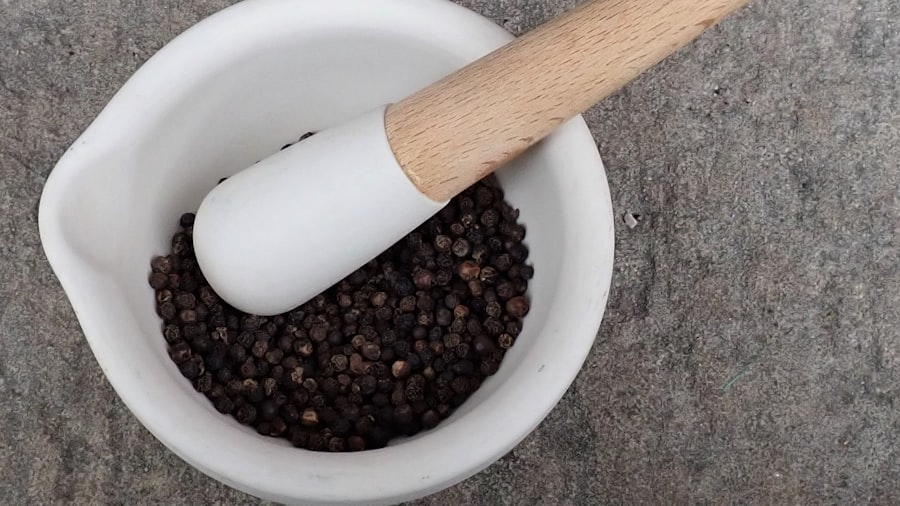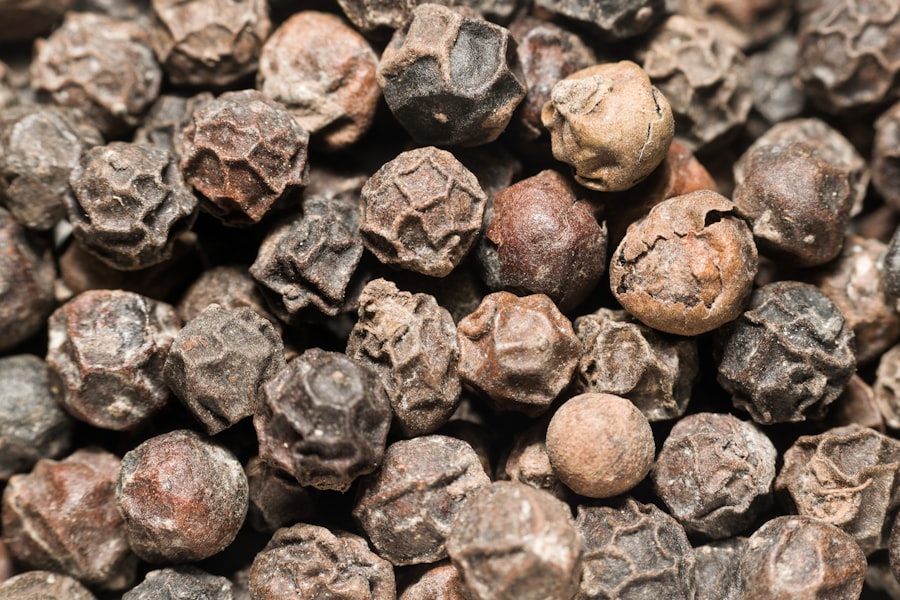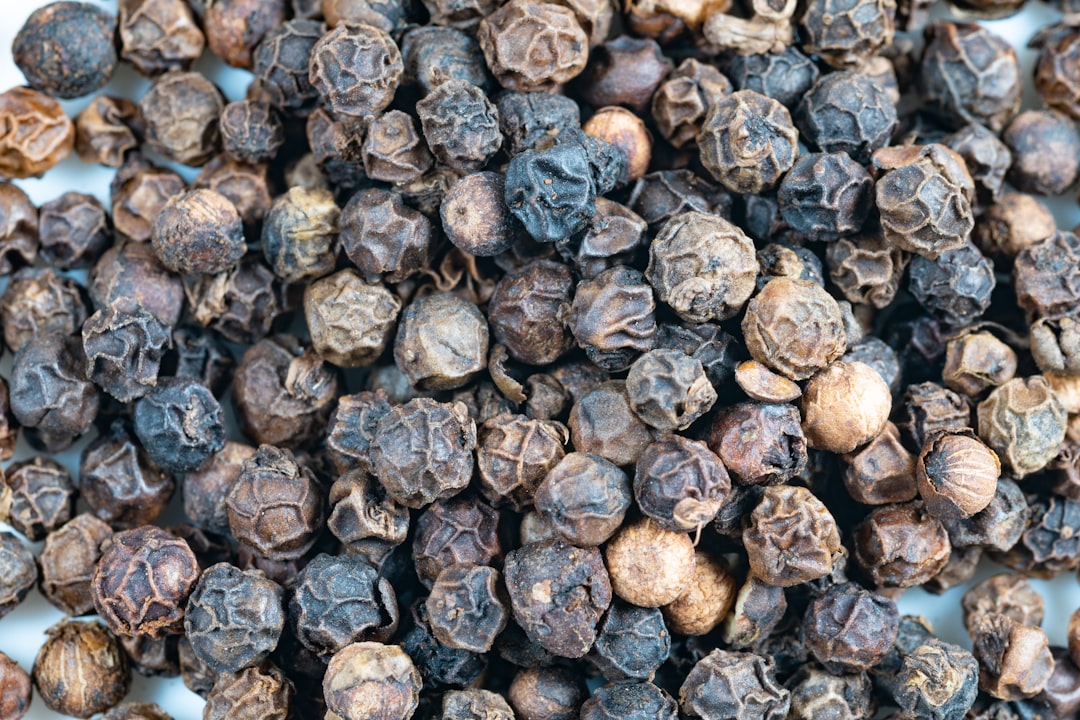Turmeric, often referred to as the golden spice, has been celebrated for centuries for its vibrant color and myriad health benefits. You may have encountered it in various forms, from culinary dishes to health supplements. The active compound in turmeric, curcumin, is primarily responsible for its therapeutic properties.
This potent antioxidant and anti-inflammatory agent has been linked to a range of health benefits, including improved brain function, reduced risk of heart disease, and even potential cancer-fighting properties. As you delve deeper into the world of turmeric, you will discover that its applications extend far beyond the kitchen. Incorporating turmeric into your daily routine can be a transformative experience.
Whether you choose to add it to your morning smoothie, sprinkle it on roasted vegetables, or brew it into a soothing tea, the versatility of turmeric makes it an easy addition to your diet. However, while turmeric is undoubtedly powerful on its own, its full potential can be unlocked when combined with other ingredients, particularly black pepper. This combination not only enhances the flavor of your dishes but also amplifies the health benefits of turmeric, making it a dynamic duo worth exploring.
Key Takeaways
- Turmeric has powerful anti-inflammatory and antioxidant properties
- Black pepper enhances the bioavailability of turmeric’s active compound, curcumin
- Piperine in black pepper plays a key role in increasing turmeric absorption
- Incorporate turmeric and black pepper into your diet through golden milk, smoothies, or curries
- Quality and dosage are important factors in maximizing the benefits of turmeric and black pepper
Understanding the Benefits of Black Pepper
Black pepper, often dubbed the “king of spices,” is more than just a common seasoning found in kitchens around the world. You might be surprised to learn that this humble spice carries a wealth of health benefits that complement those of turmeric. The primary active compound in black pepper, piperine, is known for its ability to enhance nutrient absorption and improve digestion.
When you sprinkle black pepper on your meals, you are not just adding flavor; you are also supporting your body’s ability to absorb essential nutrients more effectively. Moreover, black pepper possesses its own set of health-promoting properties. It has been shown to have antioxidant effects, which can help combat oxidative stress in the body.
Additionally, black pepper may aid in weight management by boosting metabolism and promoting fat breakdown. As you consider incorporating both turmeric and black pepper into your diet, it’s essential to recognize how these two spices work synergistically to enhance overall health and well-being.
The Science Behind the Combination

The combination of turmeric and black pepper is not merely a culinary choice; it is backed by scientific research that highlights their complementary effects. When you consume turmeric alone, the body struggles to absorb curcumin effectively due to its low bioavailability. This means that much of the curcumin passes through your system without being utilized.
However, when you pair turmeric with black pepper, piperine comes into play, significantly increasing curcumin’s absorption rate. Studies have shown that piperine can enhance the bioavailability of curcumin by up to 2000%. This remarkable increase means that when you enjoy turmeric alongside black pepper, you are allowing your body to reap the full benefits of curcumin.
Understanding this scientific foundation can empower you to make informed choices about how you incorporate these spices into your diet for maximum health benefits.
How Black Pepper Enhances Turmeric’s Bioavailability
| Study | Findings |
|---|---|
| Study 1 | Black pepper increases absorption of curcumin by 2000% |
| Study 2 | Piperine in black pepper enhances bioavailability of turmeric |
| Study 3 | Combining black pepper with turmeric improves curcumin levels in the body |
The enhancement of turmeric’s bioavailability through black pepper is a fascinating process that involves several mechanisms. When you consume piperine, it inhibits certain enzymes in the liver and intestines that would otherwise metabolize curcumin too quickly. This inhibition allows curcumin to remain in your system longer, giving your body more time to absorb its beneficial properties.
As you explore this dynamic interaction, you may find yourself more inclined to include both spices in your meals. Additionally, piperine increases the permeability of your intestinal lining, which further aids in the absorption of curcumin. This means that not only does black pepper help curcumin stay in your system longer, but it also facilitates its passage through your digestive tract.
By understanding how this process works, you can appreciate the importance of combining these two spices for optimal health benefits.
The Role of Piperine in Black Pepper
Piperine is the star player in black pepper’s health benefits and is responsible for many of its unique properties. As you learn more about piperine, you’ll discover that it is not just a flavor enhancer; it also possesses anti-inflammatory and antioxidant effects similar to those found in turmeric. This means that when you consume black pepper alongside turmeric, you are not only improving curcumin’s absorption but also adding another layer of health benefits to your diet.
Moreover, piperine has been studied for its potential role in enhancing cognitive function and reducing symptoms associated with neurodegenerative diseases. By incorporating both turmeric and black pepper into your meals, you are creating a powerful combination that supports brain health while also addressing inflammation throughout the body. This dual action makes them an excellent choice for anyone looking to improve their overall well-being.
Ways to Incorporate Turmeric and Black Pepper into Your Diet

Incorporating turmeric and black pepper into your diet can be both enjoyable and easy. You might start by adding a pinch of turmeric and black pepper to your morning smoothie or juice for an energizing boost.
This comforting drink not only warms you up but also provides a wealth of health benefits. Another delicious way to enjoy this dynamic duo is by seasoning roasted vegetables or grains with turmeric and black pepper. You can create flavorful rice or quinoa dishes by sautéing onions and garlic before adding spices and broth.
As you experiment with different recipes, you’ll find countless ways to enjoy these spices together.
Potential Health Benefits of Turmeric and Black Pepper
The potential health benefits of combining turmeric and black pepper are extensive and well-documented. You may find that this powerful duo can help reduce inflammation throughout your body, which is particularly beneficial for those suffering from chronic conditions such as arthritis or inflammatory bowel disease. The anti-inflammatory properties of curcumin and piperine work together to alleviate pain and discomfort while promoting overall joint health.
Additionally, research suggests that this combination may support cardiovascular health by improving circulation and reducing cholesterol levels. As you incorporate turmeric and black pepper into your diet regularly, you may notice improvements in your heart health markers over time. Furthermore, their antioxidant properties can help protect your cells from damage caused by free radicals, potentially lowering your risk of chronic diseases such as cancer and diabetes.
Tips for Maximizing the Benefits of Turmeric and Black Pepper
To maximize the benefits of turmeric and black pepper in your diet, consider a few practical tips. First and foremost, always pair turmeric with black pepper when cooking or preparing dishes. This simple addition can significantly enhance curcumin’s absorption and effectiveness in your body.
Additionally, using healthy fats such as olive oil or coconut oil when cooking with these spices can further improve absorption since curcumin is fat-soluble. Another tip is to consume turmeric in its whole form rather than relying solely on supplements. Whole foods provide a range of nutrients that work synergistically to promote health.
You might also consider incorporating other complementary ingredients such as ginger or cinnamon for added flavor and benefits. By being mindful of how you prepare and consume these spices, you can ensure that you’re getting the most out of their powerful properties.
Potential Risks and Side Effects of Turmeric and Black Pepper
While turmeric and black pepper are generally safe for most people when consumed in moderation as part of a balanced diet, there are some potential risks and side effects to be aware of. For instance, excessive consumption of turmeric may lead to gastrointestinal issues such as nausea or diarrhea in some individuals. If you’re considering taking high-dose supplements or have underlying health conditions, it’s wise to consult with a healthcare professional before making significant changes to your diet.
Additionally, piperine can interact with certain medications by affecting their metabolism in the liver. If you’re taking prescription medications or have concerns about potential interactions, it’s essential to discuss this with your doctor or pharmacist before incorporating large amounts of black pepper into your meals.
The Importance of Quality and Dosage
When it comes to reaping the benefits of turmeric and black pepper, quality matters significantly. You should opt for high-quality organic turmeric powder or fresh turmeric root whenever possible to ensure you’re getting the most potent form of curcumin available. Similarly, choose whole black peppercorns or freshly ground black pepper for maximum flavor and health benefits.
In terms of dosage, there is no one-size-fits-all answer; however, incorporating about 1 teaspoon of turmeric along with a pinch (about 1/4 teaspoon) of black pepper into your daily meals is a good starting point for most people. As you become more familiar with these spices and their effects on your body, you can adjust the amounts according to your preferences and needs.
Harnessing the Synergistic Effects of Turmeric and Black Pepper
In conclusion, the combination of turmeric and black pepper offers a powerful synergy that can enhance your overall health and well-being. By understanding the science behind their interaction and incorporating them into your daily diet thoughtfully, you can unlock their full potential. From reducing inflammation to supporting heart health and boosting nutrient absorption, these two spices work together harmoniously to provide numerous benefits.
As you embark on this journey toward better health through nutrition, remember that small changes can lead to significant improvements over time. Embrace the vibrant flavors and remarkable properties of turmeric and black pepper as essential components of your culinary repertoire. By doing so, you’ll not only enjoy delicious meals but also take proactive steps toward enhancing your overall quality of life.
When discussing the health benefits of turmeric, a common question arises: is black pepper necessary to enhance its effects? The combination of turmeric and black pepper is often recommended because piperine, a compound in black pepper, can significantly increase the absorption of curcumin, the active ingredient in turmeric. For those interested in exploring more about the health benefits of turmeric and its interactions with other ingredients, you might find this related article insightful. It delves into various aspects of senior health and the role of natural supplements:
